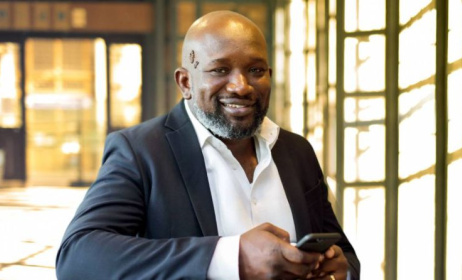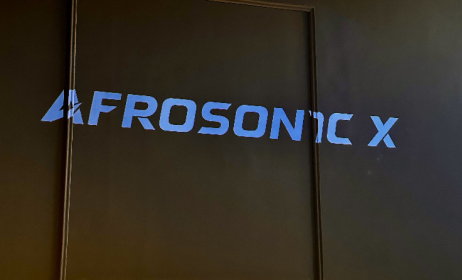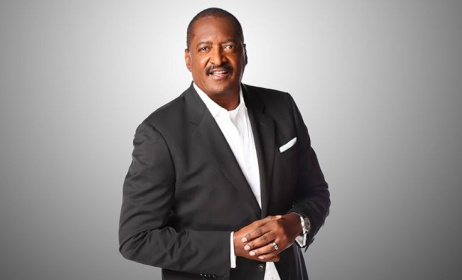Accra as hub for French-speaking musicians
By Oualid Khelifi
Overlooking the cliffs of Jamestown quarter, the art-market is a tourist landmark in Ghana's capital Accra. Buzzing with craftsmen knocking on hardwood to shape their instruments, visitors stroll along lines of djembes, tamani talking drums and traditional balafons on sale.
While local merchants still hold the lion's share of economic activity within the space, young artists from neighbouring countries are increasingly setting foot in several corners of the market, particularly where music instruments are crafted. Some have been there for as long as three years, others have been arriving over the past few months. Most however didn't travel to the Ghanaian coast to make instruments, but to make music.
24 years old Adama Diarra is one of them. Born and raised amidst a large griot family in Burkina Faso, the fula-flautist has struggled since his late teenage to establish his credentials as a musician and subsequently make a living in his native country. Oscillating for years between the Burkinabe capital Ouagadougou and the Sahel musical hub of Bobo-Dioulasso (to the south-west of the landlocked French-speaking nation), Adama grew frustrated with the paradox of a musically rich roots context with a quasi-dormant scene.
Another grievance he shares with fellow art-market musicians issued from Ivory Coast, Togo, Benin and as far as Cameroon: too few opportunities back home for modern world music fusions. What to do? A one-way bus to Ghana despite not speaking any English nor a local language. How so? He learned through word-of-mouth that a community of Francophone West African musicians is forming in Accra, and that many have claimed their space.
How true? Almost one year after his arrival, Adama is moderately enthusiastic than excited. He admits that Ghana has been the most dynamic musical experience he has ever had. Despite ending up in artisan professions, the art-market Francophone crew not only pride themselves in having performed an average of few concerts a year, but also of having learnt basic English, a vital tool they believe is needed to break into global music production.
Recalling the very first days in Jamestown, Adama described how hopeful he was upon his arrival in summer 2014. In less than a week and with nothing but a handful of English words, he made his first appearance at the main stage of West Africa's biggest street art festival Chale Wote(link is external). Featuring on calabash with distant cousin Siaka Diarra who took to the Ghanaian coast a couple of years earlier, Adama found his first hook into the scene.
Soon after Adama and others discovered that a group of Burkinabe musicians were based out in Kokrobite fishing village, a mere 30km to the west of Accra. “For six months, I have been spending almost every weekend in Kokrobite. Sometimes I just jam with the guys, other times, I perform for free”, he explained.
With a diverse crowd attending concerts at Big Milly's (link is external)beach bar each Saturday, Adama has been diligent in building his network. “I take the opportunity to demonstrate what I can do with my fula flute, percussions and even balafon. I met many artists and producers, Africans as well as Westerners,” he added.
Indeed, it was at the same beach scene he met El Foukr R'Assembly(link is external), an Algerian ensemble which saw its birth last year. After having recorded their first album with Algerian Haussa and Touareg musicians living around the far south of the North African country, the band successfully run an online crowdfunding campaign(link is external) to spend one month in Ghana. Through music and short documentary, this long-term project aims to promote the African identity of the Maghreb, and to create independent bridges between the art-savvy youth at either side of the Sahara. Their first album and film are entitled 'Look South'.
“As usual, I was in Kokrobite over the weekend. Came Saturday night, a fresh sound came to my ears, it sounded like the Maghreb, like the Sahel, but I felt there was some West African groove into it. I ran to the stage, and stood with my flute by the side until I was invited to jam along,” said Adama, happily recalling his first encounter with the El Foukr R'Assembly crew.
Two days later, he was at the studio space where the Algerian visiting production was recording its second album with three local Ghanian musicians.
“We clicked right away,” he said. “The exposure to young North African artists on one side, and seasoned high-life musicians on the other, gave me the chance to contribute to an already very rich and original African blend … it also reassured me again that coming down to Ghana wasn't in vain. The Algerians must have come down here and not elsewhere for a reason.”
Back to Accra art-market where he continues to live and work as a craftsman, Adama has joined an Afro-fusion project whose members are old-school high-life musicians looking to resuscitate their careers and break into the scene by conceiving an experimental sound of the horns section. Adama's fula-flute is an integral part to this musical venture. He also managed to drag into the project Franco, a young Burkinabe percussionist and a fellow art-market dweller.
Meanwhile, life may smile further at Adama over the next few months. Not only are his wind instrument and vocals to feature in two tracks of El Foukr R'Assembly upcoming album, part of the documentary film to tell the story of the Algerian ensemble in Ghana will be dedicated to him. Shot earlier this year including a fula-flute Gnawa-guembri duo performance, Adama's personal strife and musical knack will be showcased in the film to get released in late 2015.
“I am already dreaming of touring North Africa and elsewhere across the continent and the world… I am aware it will not happen overnight, but I am convinced that these recent Ghanian encounters will take me somewhere.”
Accra may not be the most happening place in the world for a musician, he added, “but it works for me. Home and family are just 24 hours bus ride across the border … it is financially very tough for all of us in the art-market, but I am young and determined enough to make the most out of my stay here. The idea is to seize opportunities regardless of how few they might be”.
A delusion? Not necessarily. While it goes without saying that guarantees to break into an art scene anywhere are never a given, Accra-based musical endeavours involving Francophone African artists are less and less of a rarity. The Ghana-Benin Jazz project is a working example. Following appearances at Accra's jazz temples such +233, bass player Manou Falla and drummer Josephat Honou are becoming known faces in the local jazz scene.
Adama may be next.


































Comments
Log in or register to post comments